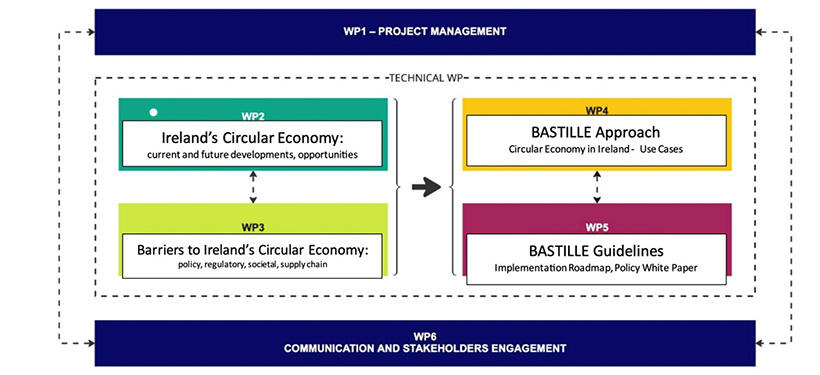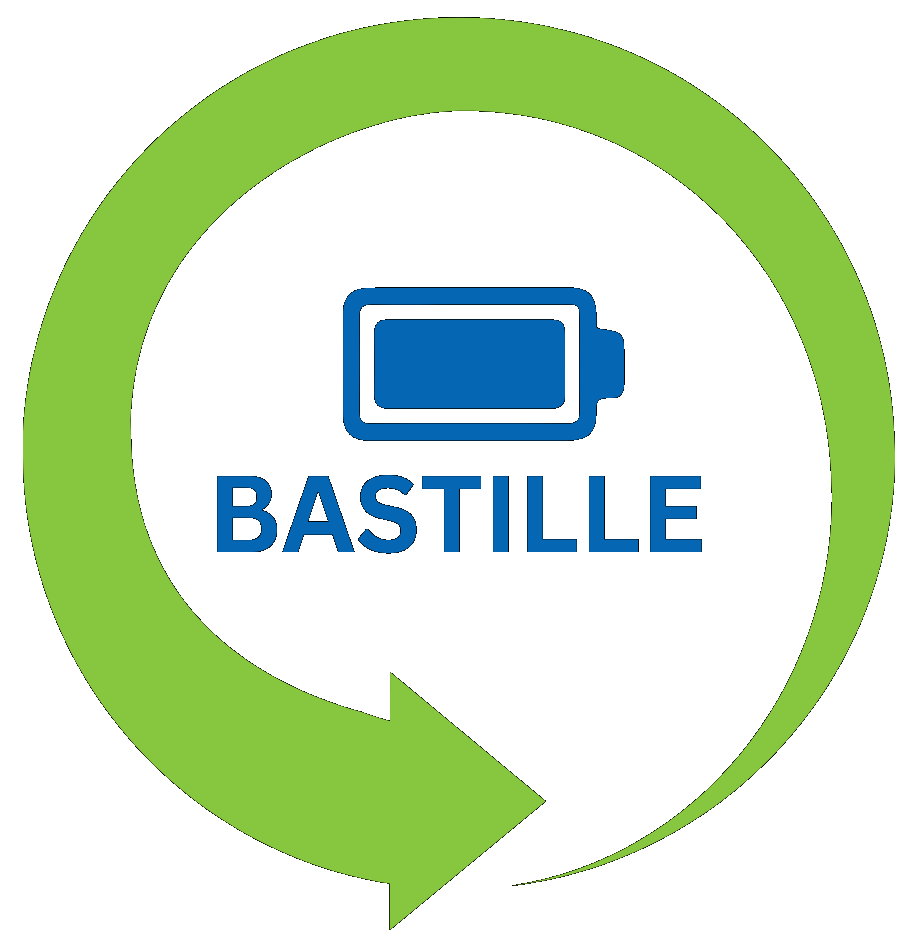Project Deliverables

The BASTILLE project is structured around a series of strategic deliverables that guide its progress and ensure impact. These outputs reflect the project's key research, coordination, communication, and policy activities, supporting Ireland’s efforts to foster a circular economy for battery materials. Each deliverable contributes to the evidence base needed for informed policymaking, innovation, and stakeholder engagement.
BASTILLE’s Work Packages and information flow:

D1.1 – Exploratory Research Plan (ERP), Lead: TCD
Defines the methodological and operational foundation of the project. It outlines the project structure, research approach, stakeholder integration, and risk management strategy, ensuring robust coordination across all work packages.
D1.2 – Data Management Plan (DMP), Lead: TCD
Establishes protocols for handling, storing, and sharing research data in accordance with FAIR principles and GDPR. It ensures transparency, accessibility, and ethical data use throughout the project lifecycle.
D1.3 – Exploratory Research Report (ERR), Lead: TCD
Provides a comprehensive summary of research findings, insights, and outcomes generated across all work packages. This final report consolidates the project’s contributions and highlights areas for further action or exploration.
D2.1 – Ireland’s Circular Economy: Current and Future Developments and Opportunities, Lead: TCD
Delivers a state-of-the-art analysis of Ireland’s circular economy, with a special focus on battery-grade graphite. It maps policy frameworks, infrastructure, demand and supply trends, and identifies opportunities to strengthen Ireland’s role in sustainable battery material management.
D3.1 – Barriers and Enablers: Stakeholder Perspectives, Lead: TCD
Captures insights from stakeholders on the societal, regulatory, technical, and behavioural challenges and drivers that shape the circular economy in Ireland. It provides a foundation for identifying practical pathways to overcome these barriers and unlock enablers.
D4.1 – International Best Practices and Learning Lessons, Lead: TCD
Offers a comparative review of international examples in circular battery material management. It highlights transferable approaches and innovations that can inform Ireland’s policy and infrastructure development for graphite circularity.
D4.2 – Scenario-Based Case Studies, Lead: TCD
Develops and analyses two place-based scenarios that illustrate how circular economy strategies for graphite could be implemented in Ireland. Each case examines feasibility, stakeholder readiness, and policy alignment in real-world contexts.
D5.1 – Validated BASTILLE Implementation Roadmap, Lead: TCD
Outlines a stakeholder-informed roadmap for implementing graphite circularity in Ireland. It proposes targeted pilot actions, investment pathways, and regulatory adjustments, aligned with national climate and energy goals.
D5.2 – BASTILLE Policy White Paper, Lead: TCD
Provides policy recommendations grounded in project evidence. It supports national and EU-level decision-making by offering practical guidance for enabling circularity in the battery materials value chain, especially graphite.
D6.1 – Dissemination and Communication Plan, Lead: ECGA
Sets out the project’s communication strategy, including stakeholder mapping, branding, messaging, and channels for outreach. It ensures consistency, engagement, and impact in all communication activities.
D6.2 – Dissemination and Communication Report, Lead: ECGA
Summarises outreach, dissemination, and stakeholder engagement activities conducted throughout the project. It documents results, lessons learned, and resources that can support ongoing awareness and collaboration beyond the project’s duration.
